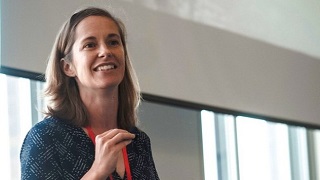2025 Rutgers Active Learning Symposium
Date
Event Location

The Rutgers Active Learning Symposium (RALS) is a day of discussions, presentations, panels, and workshops relating to various topics in active learning. The eighth edition of the annual Symposium will be an opportunity for faculty and staff at Rutgers and beyond to come together to share and learn pedagogic practices in this exciting area.
 This year's keynote speaker will be Allison Posey. Allison earned a degree in Mind, Brain, and Education from Harvard Graduate School of Education and is the author of Engage the Brain (ASCD, 2018) and Unlearning (Cast, Inc., 2020). Allison will help us explore what is known about the brain and apply it to the design of leaning experiences. A morning lecture will be followed by an interactive workshop in which attendees can experience first-hand how learning happens in the brain through an engaging, memorable simulation.
This year's keynote speaker will be Allison Posey. Allison earned a degree in Mind, Brain, and Education from Harvard Graduate School of Education and is the author of Engage the Brain (ASCD, 2018) and Unlearning (Cast, Inc., 2020). Allison will help us explore what is known about the brain and apply it to the design of leaning experiences. A morning lecture will be followed by an interactive workshop in which attendees can experience first-hand how learning happens in the brain through an engaging, memorable simulation.
Allison's presentation and workshop will be complemented by concurrent sessions run by faculty and staff from Rutgers and beyond. Check back soon for more information regarding registration and session info as RALS nears.